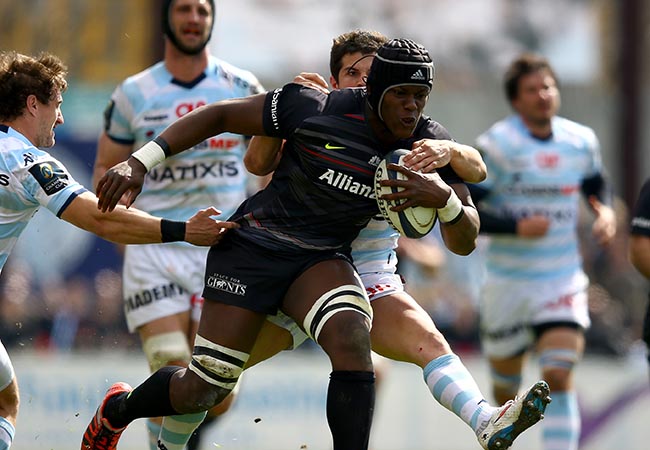 This has been a good season for the English teams in the inaugural European Champions Cup because they got four clubs in the quarter-finals, and one into the semi-final. Having 50 percent of the teams in the last eight is outstanding, and testament to the strength of the English game. Simple as that.
This has been a good season for the English teams in the inaugural European Champions Cup because they got four clubs in the quarter-finals, and one into the semi-final. Having 50 percent of the teams in the last eight is outstanding, and testament to the strength of the English game. Simple as that.
There should be no massive alarm bells ringing because Toulon and Clermont are still the teams to beat, mainly because they have assembled hugely strong squads.
Toulon have purchased a multinational side, but it is one that I don't expect to see at an English club while the salary cap is in place. There has never been a club side like it, with star players drawn from all over the rugby globe, and I am not convinced that it will be copied outside France.
The English clubs will accept where they are in the pecking order for the moment, mainly because there is very little separating them from the big French clubs.
Saracens made it through to the last four after beating Racing Metro, Bath could have got through to the last four if they had been more disciplined against Leinster, and Wasps were not disgraced against Toulon.
The only downer was the way Northampton were outplayed completely by a Clermont side that was surgical in their execution. That was a disappointment, but it was more than anything a question of brilliant attack against average defence.
I hope that Bath and Wasps maintain their progress because they have a good base of English players. The next stage is to recruit smartly, but also to graft on a development structure for producing their own players and coaches. That is what has happened in the past at Wasps with Christian Wade and Elliott Daly, and the same is true of Maro Itoje at Saracens.
However, there are signs at some clubs that it must be more financially viable to recruit from overseas than it is to invest in youth programmes. By and large club academies do not get involved with players until they are about 16, but a really important part of the development process takes place between the ages of four and 11, because this is where you learn good habits and instincts.
Youngsters only develop with the help of great coaching, and to be great it has to put a big emphasis on skills. This is still a problem area for English rugby, with plenty of volunteer coaches but of widely differing standards.
There are not many Brian Ashtons, Alex Kings or Wayne Smiths about at that level, and when they do surface they are like gold dust. This is because the English way is usually to look for big, strong players rather than skilful ones like Jonathan Joseph.
I would love to see much more emphasis on skill in the coaching of our youngsters, because what England haven't got right yet is the coaching brains trust at community level. Clubs and schools are where the RFU must concentrate a large sector of their best coaching resources, because that is the future of the game in this country.
We have seen the fruits that approach can bring with players like Jonny Wilkinson coming through for England during the late 1990s.
Ironically, Wilkinson was the glue who pulled last season's double-winning Toulon side together, and it took his quality and humility to take them away from being the stereotypical French club – where training is more haphazard than scientific – toward being fully professional. The Toulon experiment might not have happened successfully without Wilkinson, but what they did was set a course and stick to it after nominating him as their captain.
Every French side is looking for the inspiration that he provided – and what I'd like to see is for English club rugby to find similarly inspirational players.
The prototype is there for Bath because that squad will believe anything is achievable with players like George Ford, Anthony Watson, Joseph and Henry Thomas among them. There are similar figures in Billy Vunipola at Saracens and James Haskell at Wasps, and some of the rugby in the Premiership this season has been inspirational because of it.
There is not yet an English Renaissance but the league has been enjoyable to watch – with the exception of London Welsh – because the majority of Premiership clubs have gone out to score tries.
My view has always been that teams are not so much limited by budgets as they are by a lack of skill.
New Zealand rugby has always recognised this, because their budget is relatively limited, and it is their emphasis on skills that the amateur game, and the professional game, have to strive for in England.
They have proved that there is much more to it than getting the cheque-book out whenever things don't go your way. There has to be another element whereby coaches and players raise their standards.
Having better and smarter coaches and players is not necessarily about having more money – it's about having the right attitude.



























